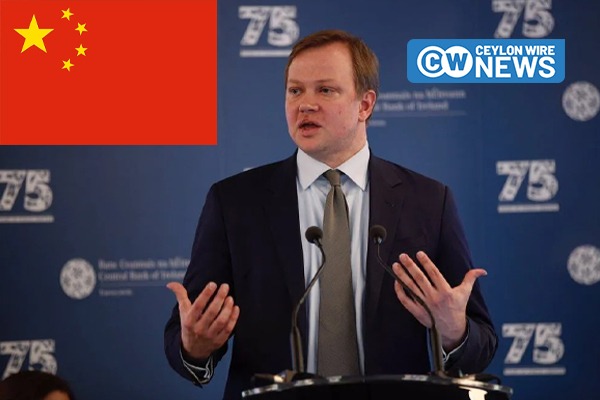China reaching a preliminary debt deal with Sri Lanka shows that the former is more comfortable negotiating debt bilaterally outside the Official Creditor Committee (OCC), a sovereign debt expert said.
Speaking at an event held on Friday (13) by the United States think tank Atlantic Council on the sidelines of the International Monetary Fund (IMF)-World Bank meetings, Council on Foreign Relations Senior Fellow and sovereign debt expert Brad Setser said that China was reaching a debt deal with Sri Lanka that wasn’t well coordinated with other creditors.
“China is more comfortable negotiating bilaterally,” he said.
However, he said that it is a major problem in a world where China is not the only bilateral creditor, while it is also a problem where China is both a bilateral creditor and a commercial creditor.
“China has decided one of its policy banks, China Development Bank (CDB), should be considered a commercial creditor, and there are other State commercial banks that are considered commercial creditors,” Setser said.
Therefore, he added that it is very hard for debtors to negotiate with China for its bilateral and commercial debt, and keep that deal a secret from the other party.
The OCC – which is co-chaired by India, Japan, and France – includes 17 countries to discuss the Sri Lankan authorities’ request for a debt treatment.
Last week, Sri Lanka reached an agreement on the key principles and indicative terms of a debt treatment with the EXIM Bank of China. The agreement, in principle, covers approximately $4.2 billion of outstanding debt which constitutes a key step towards restoring Sri Lanka’s long-term debt sustainability.
Moreover, Reuters reported that Sri Lanka’s private creditors have sent a proposal on how to restructure $12 billion of overseas debt, which includes a write-down, or haircut, on both capital and interest.
The proposal foresees the issuance of regular sovereign bonds and also of so-called macro-linked bonds (MLBs), which will automatically lower coupon payments starting in 2027 if Sri Lanka fails to meet some of the economic targets linked to its IMF programme.
(Source – The Morning)









